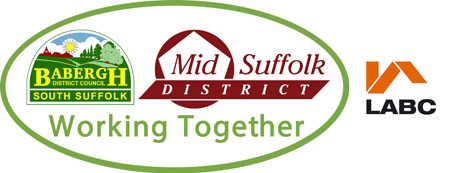Parish Council
What is a Parish Council? | Role of the Clerk | Regular Meetings | Annual Meeting – Parish Council | Annual Meeting – Parish | Planning Applications | Councillor Contact Details | Meeting dates, Minutes & Records | Policies & Procedures
What is a Parish Council?
The 1894 Local Government Act established Parish Councils making them the lowest tier of government in law with particular statutory responsibilities and duties. Walsham le Willows Parish Council is an elected body with seven seats filled by Walsham le Willows residents whose primary function is to ensure that the Parish is efficiently and economically run using a proportion of the annual Council Tax income.
This tier of local government had more responsibilities placed upon it due to the introduction of the Localism Act of 2011 and the Audit and Accountability Act of 2014.
It is a common misconception that Parish Councillors are paid for their work but the role is a voluntary and unpaid. Once elected Parish Councillors are required to sign an ‘acceptance of office’ and then to declare any relevant interests. The Register of Interests is publicly searchable. Parish Councillors are also required to sign up to a Code of Conduct as adopted by the Council.
Broad responsibilities are some of which are summarised below.
- Playgrounds and Play Equipment
- Sports and Recreational Facilities
- Street lighting
- Street cleansing
- Statutory consultations on planning issues, working to influence Planning Authority decisions, based on Councillors local knowledge
- Ensuring that the adopted Walsham le Willows Neighbourhood Development Plan reflects the shared vision for its neighbourhood.
You can find more information about Parish Councils on the gov.uk web site, The National Association of Local Councils (NALC) the Communities, Parish and Local Councils (CPALC) web site, and this Wikipedia page
Role of the Parish Clerk
The Parish Clerk is a statutory office holder fulfiling the role of “Proper Officer” and takes responsibility for the administration of the Council’s affairs having the key role of advising the council, and its members, on governance, ethical and procedural matters including the maintenance of the Council’s Standing Orders, Financial Regulations and Risk Register. The Clerk is registered as an employee of the Council with HMRC.
The Clerk prepares and posts notices, is responsible for writing the agenda and minutes, keeps the council’s records, and deals with all correspondence. As the RFO, the clerk produces the Annual Budget and issues the Precept and Grant Requests, produces the quarterly/annual budget monitoring reports, prepares all payments for authorisation, prepares the final accounts and supporting documents required by the Council’s internal and external auditors, and arranges the council’s insurance.
The Clerk is not answerable to any individual councillor, including the chairman, and is an independent employee of the council, recognising that the council is responsible for all decisions and taking instruction from the council as a body. If the council has other members of staff then the clerk is their line manager.
Regular Monthly Meetings
Parish Council meetings are open to the public. Anyone can attend to observe and make representations to councillors by invitation of the Chair under the usual ‘Public Open Forum’ agenda item. Sometimes the Parish Council may invite people to participate because they have some particular knowledge and expertise that would be helpful in the Council’s deliberations. Members of the public are unable to take part in any other part of the meeting unless specifically invited to address a particular agenda item by the Chair.
By law a Parish Council must hold a minumum of four meetings each year. Walsham Parish Council meets on the second Wednesday of each month in the Memorial Hall from 7pm. The meeting held in May is designated by statute as the is the Annual Meeting of the Parish Council.
If you are interested to listen or speak at the meetings, do please come along. If you would prefer not to attend in person you can submit a representation or question to the clerk by post or email.
At least three clear days notice is given of each meeting by a posting on the notice board near the post box in front of the Bowling Club and on this webpage.
Annual Meeting of the Parish Council
The Annual Meeting of the Parish Council has to be held on any day in May other than election years (next 2023) when it must be held on the 4th day after election day or within 14 days thereof. In practice, Walsham convenes this meeting on the usual second Wednesday of the month unless proscribed otherwise by the date of the quadrennial local elections. Like all Parish Council meetings it is a public meeting.
At the Annual Meeting the first business has to be the election of the Chairman and vice-chairman. The Chair signs a Declaration of Acceptance (of office). Committee members and representatives are also appointed to other bodies. And there is a list of annual housekeeping items on the agenda. The rest of this meeting follows the usual format.
In an election year all councillors are re-elected, including Chair and Vice-Chair and all sign a Declaration of Acceptance of office.
Parish Council Objectives 2024/25
| i. Section 19 review of Flooding in partnership with SCC |
| ii. Actions from Walsham Community Traffic group proposal |
| iii. Establish Community Emergency plan |
| iv. Follow up on proposed footpath developments with MSDC and SCC |
| v. Monitor development plans at Shepherd’s Grove |
| vi. Possible consulting more widely on bus routes |
| vii. Completion & engagement with joint local plan part ii |
The Annual Meeting of the Parish

The Annual Parish Meeting has no prescribed format but In Walsham le Willows for the past few years has been helds as a relaxed and informal ‘Question Time’ which is a chance for the community of the Parish to get together to raise concerns and discuss ideas which the Parish Council then uses to inform its annual priorities.
By law this meeting has to be held on any day from 1st March to 1st June inclusive with 7 days public notice. This is a meeting of the electorate, NOT the Parish Council.
The chairman of the Parish Council, any two councillors or any six electors can call the Annual Parish Meeting. Parish Councillors do not have to attend but it is good practice for them to do so, along with the Chairman who will preside if present and will usually give an annual report on the work of the Parish Council.
The Parish Council provides refreshments for the event (tea and cake and non-alcoholic beverages).
If you are unable to attend please submit representations, question or ideas by send to the Clerk by email or post.
Parish Council and Planning Applications

The only requirements in law on the Local Planning Authority (LPA), Babergh & Mid-Suffolk District Council, are for notification to the Parish Council of planning applications and to take any representations into account. This does not mean that the LPA will decide an application as the Parish Council have indicated.
The LPA is only entitled to take into account planning related matters when considering an application and has access to more information than the Parish Council.
The LPA must balance comments from the Parish Council with all the other representations received, and they have restrictions on the way in which they are entitled by law to deal with applications because they must not take into account non-planning related matters in determining an application. The way objections are worded and presented is therefore key to their effectiveness.
The LPA will receive advice from their professional officers on how an application should be dealt with. A Parish Council usually does not take such advice, not least because of the potential expense that ultimately falls to the Council Tax charge.
The LPA must take into account the representations of others as well as a Parish Council, especially the observations of consultees, both statutory and non-statutory, neighbours of a development, and the applicant.
For the Parish Council’s representations to carry weight they must be carefully and coherently expressed as the view of the Parish Council as a ‘corporate body’ rather than that of individual Parish Councillors.
The Parish Council’s formal representations are submitted on the LPA’s planning portal. Anyone can access this portal to follow the progress of a particular application. Unless a detailed response is required the Parish Council comments only to ‘object’, ‘support’ or to make ‘no comment’.
Through the Localism Act 2011, two new ways in which local councils can influence planning were introduced, one of which was a neighbourhood plan, which having demonstrated its general alignment with the strategic policies of the Local Plan (the process the neighbourhood plan group followed) and brought into force (as passed by referendum and adopted by the LPA), takes precedence over existing non-strategic policies in the Local Plan for a neighbourhood. And where these are in conflict it gives local communities more say about where new homes are built and what they should look like.
Babergh Mid Suffolk Planning – all you need to know
BMSDC Planning Portal – publicly accessible planning database (commenting on applications requires registration).
Address for written comments on planning applications is:
Planning Department
Endeavour House
Russell Road
Ipswich IP1 2BX
Clearly state the application reference number
Remember to increase the weight of any objection you make, address ‘planning considerations‘ on which an LPA can legally make a decision.
Contacts
| Name & Email | Responsibilities | Address/Contact |
|---|---|---|
| Kevin Boardley Clerk 'Responsible Financial Officer' (RFO) | Role of Parish Clerk Flood Response Working Group Community Emergency Plan Working Group | Willow Cottage The Street Walsham le Willows 01359 259 794 |
| Councillor Richard Belson Chairman Declaration of Acceptance of Office Register Of Interests | Footpaths & Footpaths Working Group lead Local Heritage Neighbourhood Plan Rep Tree Warden | Foxglove Cottage Crownland Road Walsham le Willows IP31 3BS 01359 258868 |
| Councillor Ian Bartholomew Vice Chairman Declaration of Acceptance of Office Register Of Interests | Community Council Community Emergency Plan Working Group | 2 Upper Meadow Finningham Road Walsham le Willows IP31 3AY 01359 258349 |
| Councillor Ann Brookes Declaration of Acceptance of Office Register Of Interests | Community Emergency Plan Workign Group Lead Traffic Working Group | Address in Parish not notified for publication. 01359 259206 |
| Councillor Nicholas Mecrow Declaration of Acceptance of Office Register Of Interests | Litter Picks Organiser Neighbourhood Plan Rep Flood Response Working Group Footpaths Working Group | Thornaby House Summer Road Walsham le Willows IP31 3AJ 01359 258243 |
| Councillor Trevor Roberts Declaration of Acceptance of Office Register Of Interests | Community Council Rep Sports Club Rep Get Mapping expert Litter Picks Organiser Flood Response Working Group | Acorn House Chapel Road Wattisfield IP221NY 01359 251144 |
| Councillor Nicholas Tuck Declaration of Acceptance of Office Register Of Interests | Internal Financial Oversight Community Council Rep | Address in Parish not notified for publication. 07803234504 |
| Councillor Janette Winch Declaration of Acceptance of Office Register Of Interests | Traffic Working Group Lead Flood Response Working Group Lead Village Stream Management Lead | Riverside The Street Walsham le Willows IP31 3AZ 07572 866 430 |
District, County and National Representatives
When contacting district, county and national representatives please include your full address. MP's do not reply to email that do not include a constitunecy address.| Councillor Richard Winch (Green) | m | 07931 709486 | District Councillor |
| Councillor Jessica Fleming (Conservative) | The Limetrees All Saints Road Creeting St Mary IP6 8PJ w | 01449 711065 m | 07714 597980 | County Councillor |
| Adrian Ramsey MP (Green) or Adrian Ramsey MP (Green) | Constituency Office TBA House of Commons London SW1A 0AA | Member of Parliament |
Meeting dates, Minutes & Records

Latest published Parish Council Agenda, Minutes, Budget Reconciliation Reports and reports from County and District Councillors. The Minutes are also published each month in the Walsham Observer.
These are public meetings. If you would prefer not to attend in person you can submit a representation or question to the clerk by post or email.
Policies, Procedures & Control Documents

These documents are reviewed and updated annually. There are also some informational documents on the role of a Councillor, elections and legal spending powers.
Use the search box here to find items based on any text in the table below.

